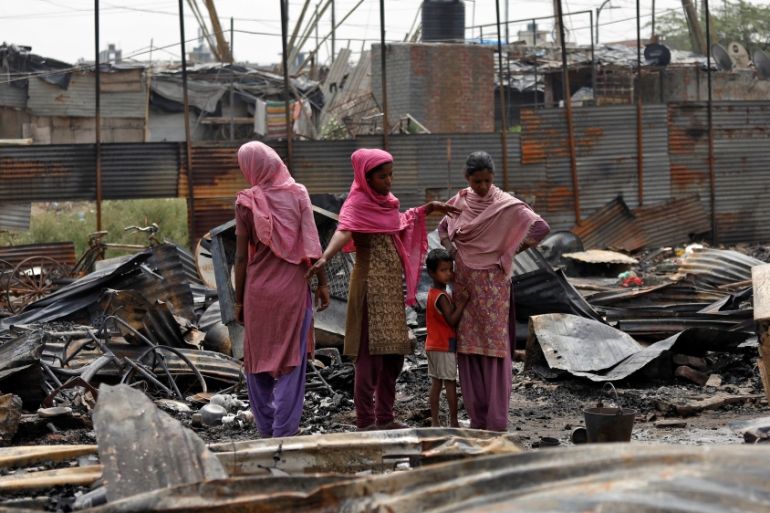Myanmar and UN agree on steps for Rohingya repatriation
The agreement calls for a framework of cooperation that will lead to the ‘voluntary’ and ‘safe’ return of refugees.

Myanmar and the UN have agreed to take steps to create conditions for the safe return of about 700,000 mostly Muslim Rohingya who have fled military-led violence into Bangladesh.
The agreement announced by the government and two UN agencies on Thursday calls for a framework of cooperation that will lead to the “voluntary, safe, dignified and sustainable” repatriation of Rohingya refugees “to their places of origin or of their choosing”.
Keep reading
list of 4 itemsConflict, climate, corruption drive Southeast Asia people trafficking: UN
Bodies of three Rohingya found as Indonesia ends rescue for capsized boat
How is renewed violence in Myanmar affecting the Rohingya?
The UN refugee agency said that the conditions for voluntary return are not conducive yet.
|
|
The memorandum of understanding, which is expected to be signed next week, “is the first and necessary step to support the government’s efforts to change that situation and is also intended to support recovery and resilience-based development for the benefit of all communities living in Rakhine State,” UNHCR said in a statement.
Myanmar and Bangladesh agreed in November to begin repatriating the Rohingya, but the refugees expressed concern that they would be forced to return to unsafe conditions in Myanmar if the process is not monitored by international aid groups.
‘Safety and dignity’
The government said in a statement that it signed the agreement with the UN Development Programme and the UN refugee agency for their assistance so that verified displaced people “can return voluntarily in safety and dignity”.
The UN said the agreement also provides for the two agencies to be given access to western Rakhine State, where most of the violence against the Rohingya has occurred since August.
It said that it will allow the refugee agency to assess the situation, carry out protection activities, and provide information to refugees about conditions in their home areas so that they can better decide whether they want to return.
Myanmar’s security forces have been accused of rape, killing, torture and the burning of Rohingya homes.
The UN and the United States have described the army crackdown as “ethnic cleansing”.
The government has denied the accusations.
The government of predominantly Buddhist Myanmar says Rohingya are illegal migrants from Bangladesh, even though most have lived in the country for generations.
Myanmar has said so far it will only allow refugees with identity documents, which most Rohingya lack, to return.